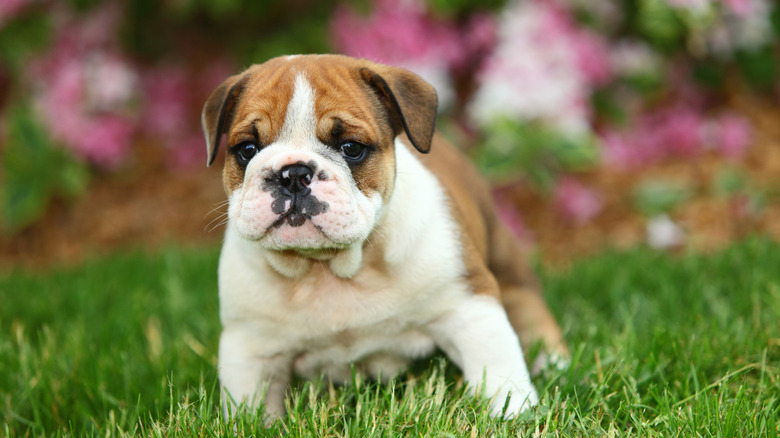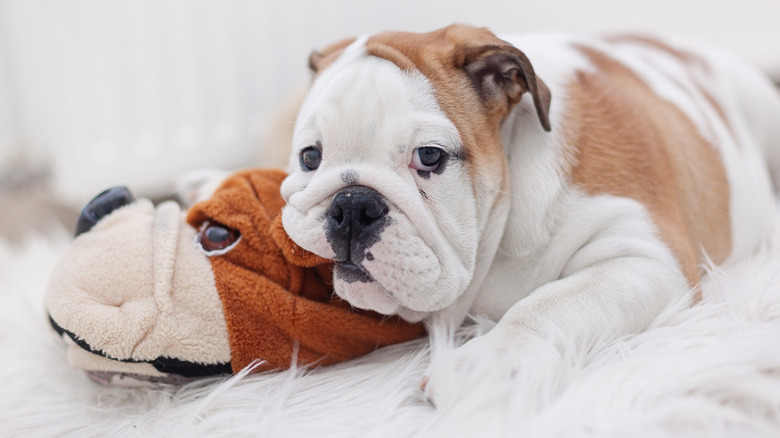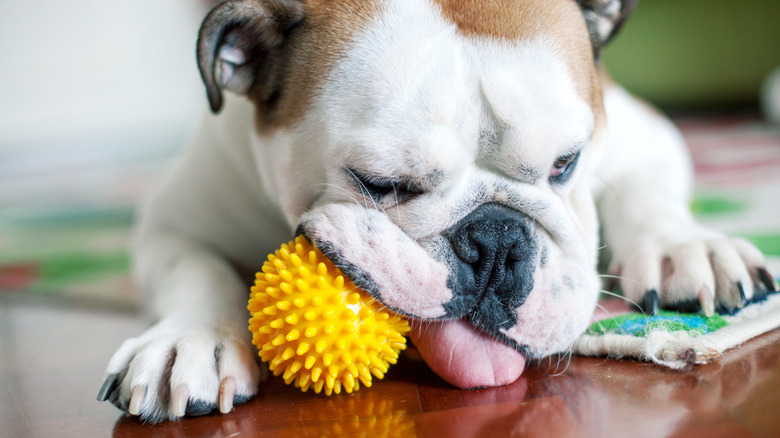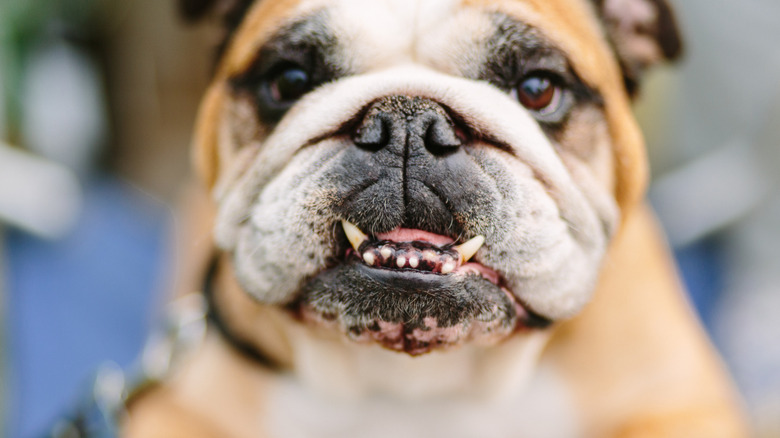English Bulldog Puppy Teething Information
We may receive a commission on purchases made from links.
Like all puppies, English bulldog puppies have baby teeth that fall out and are gradually replaced with adult teeth. Like human babies, puppies go through a teething stage. English bulldogs, like most bulldogs, start to lose their puppy teeth at around 12 weeks old, and some lose them earlier.
Keep in mind that teething is painful for an English bulldog puppy, and your dog might try to ease that pain by chewing on your shoes, furniture, and whatever else he can get his paws on. Don't punish your dog for trying to relieve his discomfort while he's teething. Instead, you can stop an English bulldog from biting by redirecting their attention and giving them praise when they engage in productive behaviors. As their teeth start to come in, give them something suitable for chewing, like puppy teething toys. ENZZROA sells a 3 pack of Puppy Teething Toys specifically for small and medium dogs that includes rubber teething rings. American Kennel Club notes that it is important to stick with rubber toys that are somewhat soft, yet durable. You don't want them to break and have your puppy accidentally swallow or choke on the pieces.
English bulldog teeth
Just like other breeds of dogs, an English bulldog teeth diagram will show that adult dogs have a total of 42 teeth. Most puppies have 28 teeth at first, and the rest erupt in the following few months A puppy's teeth start to come in at 2 to 4 weeks old, probably before you've been introduced, and there's usually a full set of teeth by the time they are 5 to 6 weeks old.
Like children, dogs lose their baby teeth when their adult teeth start to come in. This usually happens when a dog is 12 to 16 weeks old, and it can be a painful process. You might find a few on the floor, but that's not likely. Dogs, including English bulldogs, usually swallow their baby teeth. This is normal. By the time your puppy is 6 months old, there probably won't be any baby teeth left. Your dog's adult teeth are here to stay, hopefully for a long time.
Redirect inappropriate chewing
Remember that teething is stressful and painful for puppies, including English bulldogs. Dogs, especially when teething, often cope by chewing. This is a perfectly normal way of self-soothing as long as they're chewing on a toy or teething ring and not your shoes, furniture, or other household items.
If you catch your puppy chewing on something she shouldn't, don't punish her. She's just trying to make herself feel better. Instead, redirect her chewing to something that's meant for chewing, such as a puppy teething ring. Human baby teething rings are too soft. Also, frozen fruit or frozen broth cubes can help alleviate discomfort because it gives your puppy something to chew, and the cold can soothe inflammation.
Develop a teeth-cleaning routine
Fortunately, the teething stage doesn't last long. After six months, all baby teeth should be gone; if they are not, a vet might have to remove them. Once your dog has all his adult teeth, the care is not over. Brush your dog's teeth every day to help prevent pain and illness. The best time to start an oral hygiene routine is when your bulldog puppy is teething. Many dogs don't like having their teeth brushed in the beginning, so patience is key.
Select a comfortable place to brush your dog's teeth. Give him positive feedback as he gets more comfortable with having his teeth brushed. This is a new experience for your dog, so be patient and give him lots of praise. When your dog is willing to have his teeth brushed, keeping him healthy gets a lot easier.
Brushing your dog's teeth is as important as brushing your own, but many dog owners neglect this important practice. When teeth get infected with bacteria, that bacteria can be absorbed into the bloodstream and can cause secondary infections in other parts of your dog's body. Dental and periodontal diseases are common in bulldogs, and it's often because dental hygiene is ignored. Remember that dental disease is painful for your dog, especially during mealtimes.



